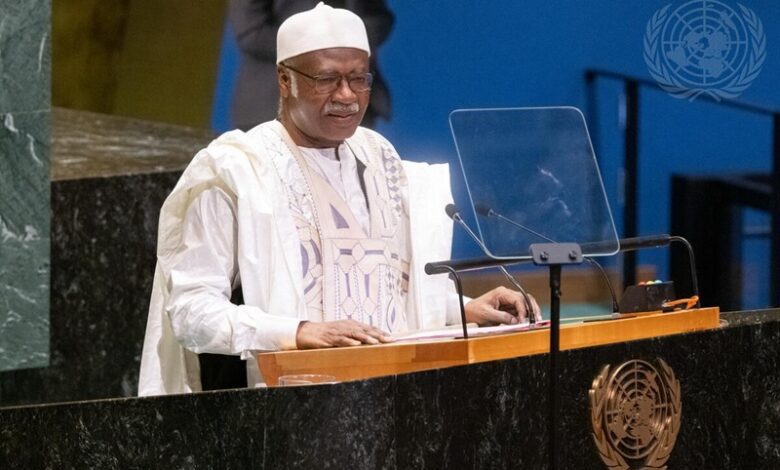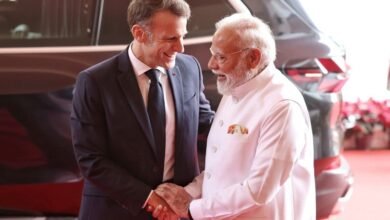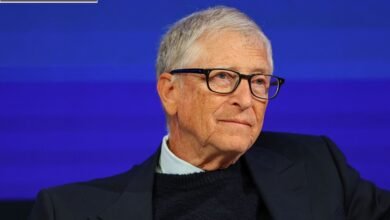Imperative for UN to be fit for purpose, call on member states to commit to Security Council reform: UNGA President Yang
News Mania Desk / Piyal Chatterjee / 2nd February 2025

With the United Nations reaching its 80th anniversary this year, it is essential for it to be suitable for its goals, remarked UN General Assembly President Philemon Yang, urging all member states to “participate actively” and dedicate themselves to reforms, including those of the Security Council.
Yang, preparing for his inaugural official trip to India from February 4 to 8 as the President of the 79th session of the UN General Assembly, stated that the international organization must recognize the necessity to adjust to the evolving times.
“I believe it is imperative for the United Nations to be fit for purpose, to better address the many pressing issues of global concern. As the UN marks its 80th anniversary we must acknowledge the need to adapt to the change of times, to a manifestly different geopolitical context to that of 1945,” Yang told PTI in an exclusive interview here.
In response to a question on UN reforms, particularly of the powerful 15-nation body on which the needle has not moved much over the past few decades, he said there is no doubt that the calls for reform have been loudest about the UN Security Council.
“Again here, the Pact for the Future provides us with a boost of political momentum for the success of the intergovernmental negotiations during this session. I am fully supportive of the membership to follow through with ambition and determination, particularly at a moment where we see a deadlocked UN Security Council on matters of key importance for the maintenance of international peace and security,” Yang said in the written interview ahead of the visit.
Bottom of Form
Yang added that the Pact emphasises the importance of making the Council more representative.
“This includes addressing the historical injustice against Africa as a priority and improving the representation of underrepresented and unrepresented regions and groups. I am hopeful that we will be able to see a consolidated model being agreed to at the end of this session and I call on all member states to engage actively and commit to reform an institution that is vital for our collective security.”
At the landmark Summit of the Future during the high-level General Assembly session in September last year, world leaders had adopted by consensus the ambitious Pact of the Future along with the annexes – the Global Digital Compact and the Declaration on Future Generations.
On UN reform, Yang further said that in this regard, the General Assembly has played and continues to play a key role.
“In fact, since the end of the Cold War, the General Assembly has been constantly reviewing its effectiveness and efficiency through the process of revitalization of the work of the Assembly.”
Yang emphasised that as the most representative body in the United Nations system, the General Assembly has the potential to lead the way into the future. As it was exemplified in September 2024, at the Summit of the Future, the Assembly was able to adopt by consensus the Pact and its annexes, charting the way forward for humanity.
India has been at the forefront of years-long efforts to reform the Security Council, saying the UN body does not reflect current geopolitics realities and underscored that it rightly deserves a permanent seat at the horse-shoe table. India last sat at the UN high table as a non-permanent member in 2021-22.
Yang underscored that it has been made clear time and time again that “we can only make progress through collaboration and partnership. World leaders must ensure that the commitments in the Pact are implemented in a comprehensive and sustainable manner.
“The success of the Pact lies in translating those commitments into tangible, transformative outcomes, especially at the national level. My message to the leaders of the world is clear: we have no time to lose.”
As Cameroon’s Prime Minister, Yang visited Delhi to attend the CII-EXIM Bank Conclave on Africa in March 2013.
To a question on how he sees India’s outreach to Africa, Yang said that over the years, India’s relationship with African countries has gained momentum across various areas, including trade, investment, sustainable development and people-to-people ties.
On strategic partnerships and global governance, India is strengthening alliances with African nations to enhance cooperation on security, counterterrorism, and combating climate change.
“India champions Africa’s voice in global forums, advocating for reforms in international institutions to better reflect African interests,” he said.
Yang emphasized that India’s backing of the Common African Position on UNSC reform and its push to incorporate the African Union as a full member of the G20 during its Presidency are evident illustrations of this collaboration.
Yang observed that after his 2013 trip to India, the Indian firm Africur Pharmaceuticals established a pharmaceutical manufacturing facility in Douala in 2018, investing around 26 million dollars. Similarly, numerous Indian firms have entered the electricity supply sector in Cameroon. He mentioned that Indian companies are investing in different areas throughout Africa, contributing to job creation and driving economic development.
For many years, India has offered development support, encompassing grants and loans for infrastructure initiatives, capacity enhancement, and education, through its Indian Technical and Economic Cooperation Programme.
“In general, India’s engagement with Africa shows an increasing acknowledgment of the continent’s possibilities and a wish to cultivate reciprocal relationships,” he stated.






